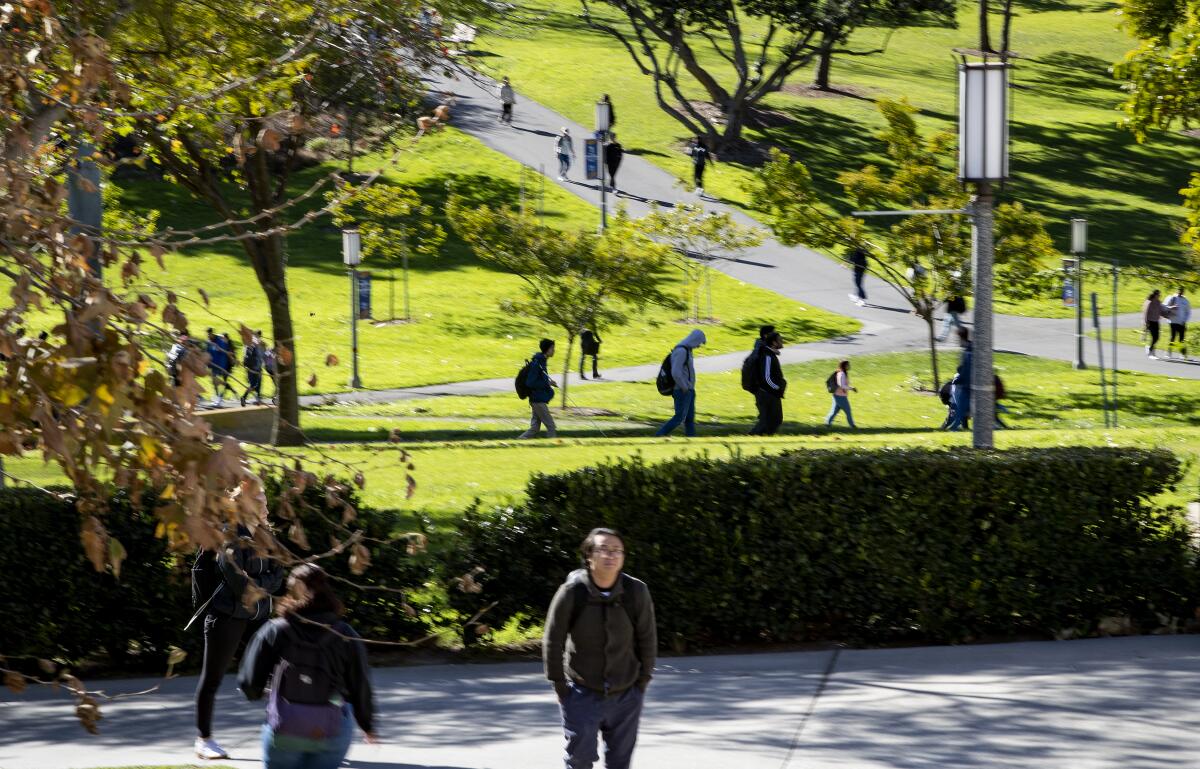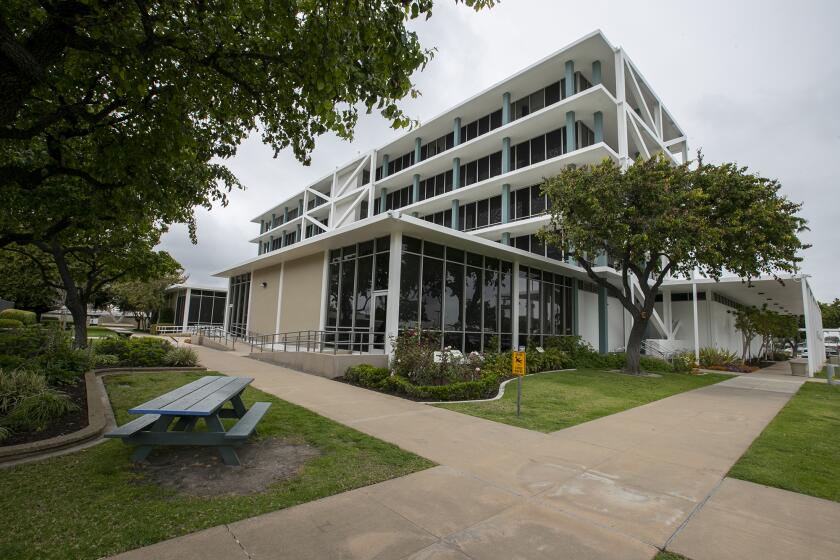Lost your sense of time during the pandemic? You’re not alone

- Share via
As the pandemic marched on and people stayed inside their homes for fear of infection, “blursday” became an everyday constant as people reported losing their sense of time.
Researchers at UC Irvine say this phenomenon — temporal disintegration — is the result of the pandemic and the collective, unaddressed trauma caused by it, in addition to other challenges that came with 2020: unemployment, financial downturns, supply shortages, death, loss, global warming, political polarization and major social upheaval.
E. Alison Holman, a professor of nursing at the university, said in a recent interview she’s been studying the relationship between trauma and the perception of time for decades.
“When you think about your life and who you are, you have a past. Your past is a big part of who you are today. We have a past, a present, which we are doing right now, and a future that we hope to get to,” Holman said. “Survivors of trauma — fires, shootings — often say things like ‘I felt like I was in slow motion’ or ‘I felt time had stopped.’
“That’s because you’re just, all of a sudden, it’s a complete shift in how your world is. That natural flow of ‘I know who I am, what I’m doing now’ — it stops and gets interrupted.”
Holman said when that lapse in the perception of time is unaddressed, it can put people at greater mental health risk.
“What happens to people is they end up getting stuck in the trauma. As time moves on, they don’t mentally move on,” said Holman, adding that this is true of psychological conditions such as post-traumatic stress disorder.
“Being able to reintegrate one’s past with the present — knowing where I am now and where I’m going, the future. That’s really important for mental health.
“Having your sense of time get messed up to the extent that it really screws you up in terms of where you see yourself going in your life, in the context of the loneliness that people were experiencing and the social isolation, it’s an open question now that I’m trying to address. How does that alter your sense of time? How might the social isolation of the pandemic have contributed to that alteration in your sense of time because you’re spending all of this time by yourself?”
Researchers examined responses about distorted time perception and other pandemic related experiences from a probability-based national sample of 5,661 participants from the National Opinion Online Research Center AmericaSpeak panel.
Surveys were conducted in 2020 between March and April, then again in September and October. The paper, recently published in Psychological Trauma: Theory, Research, Practice, and Policy, is the first two waves of research. At least two more periods of data collection are expected to follow, according to Holman.
Research documented how common the experience of losing one’s sense of time was in the first six months of the pandemic. The study noted that secondary stressors to the pandemic were also predictors of time distortion.
“We were able to measure this in a nationally representative sample of Americans as they were experiencing a protracted collective trauma, which has never been done before,” said Holman in a statement. “This study is the first to document the prevalence and early predictors of these time distortions.
“There are relatively new therapies that can be used to help people regain a more balanced sense of time, but if we don’t know who is in need of those services, we can’t provide that support.”
Holman said her greatest concern lies with young people, whose lives she says were upended.
“The pandemic really disrupted their lives at a very young age when they’re trying to set forth where they’re going to go with their lives,” said Holman. “Are they going to go to college? What are they going to study? It’s also the cascading nature of these events too. There’s so many different events that are threatening their futures.
“Climate change has been a huge thing that a lot of young people are feeling really overwhelmed by. Add that to a pandemic that’s killing people ... and the impact on young people to see such devastation at a young age in their lives,” she added.
Holman was asked what people should do if they recognize they’ve lost their sense of time.
“In order for people to regain a sense of well-being around all of this could mean some people are going to need to work on how to rebuild their futures,” she said. “How do we rebuild a future that works for us? What do we do? How do we get engaged to take the steps that we need to take to make sure we have that feeling that there is a future for me?”
Holman encourages those still experiencing this lapse in time perception to take steps, however small, to work toward a positive goal for themselves and to try and reintegrate their past into their present and their present into their future.
“Reintegrating that full flow is really important to maintain mental health and well being,” said Holman. “Community engaged action is one way to do that.”
All the latest on Orange County from Orange County.
Get our free TimesOC newsletter.
You may occasionally receive promotional content from the Daily Pilot.




